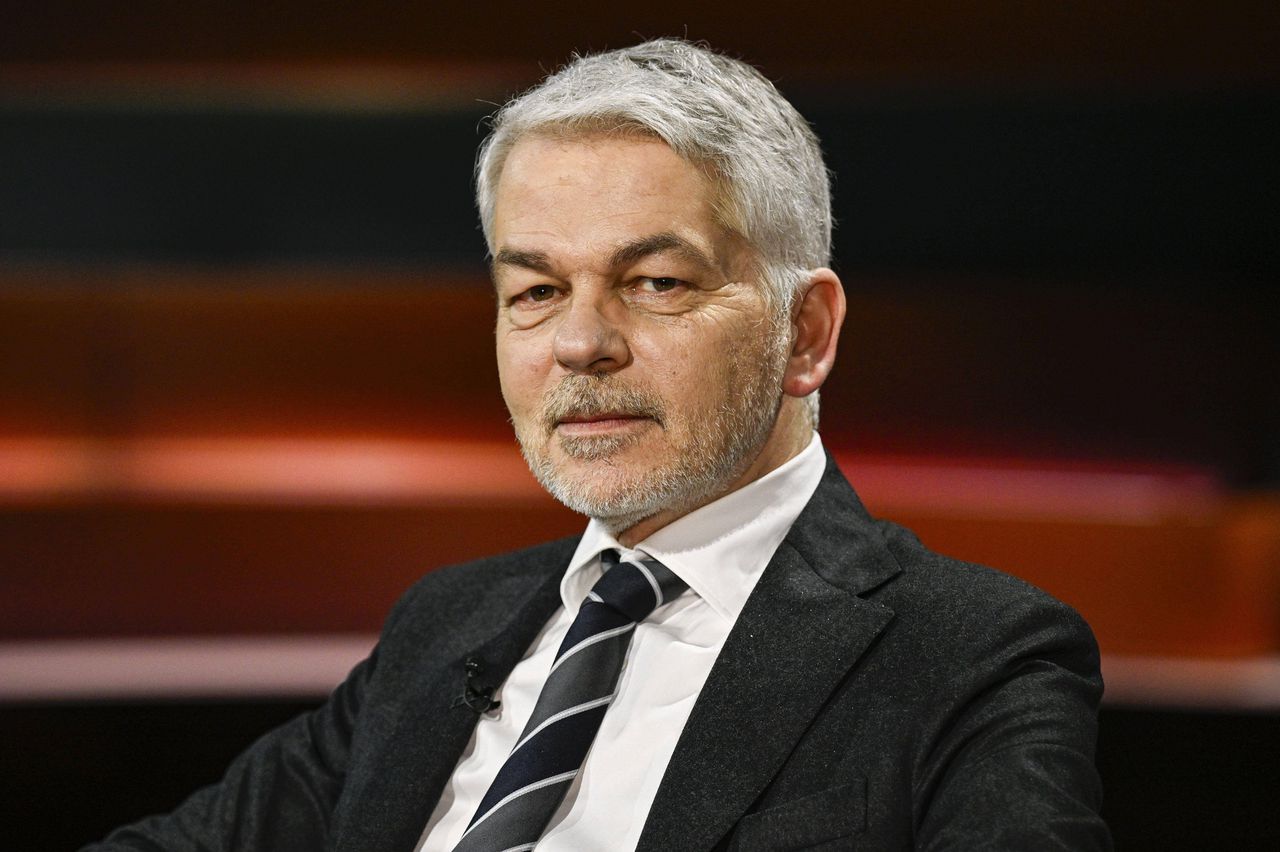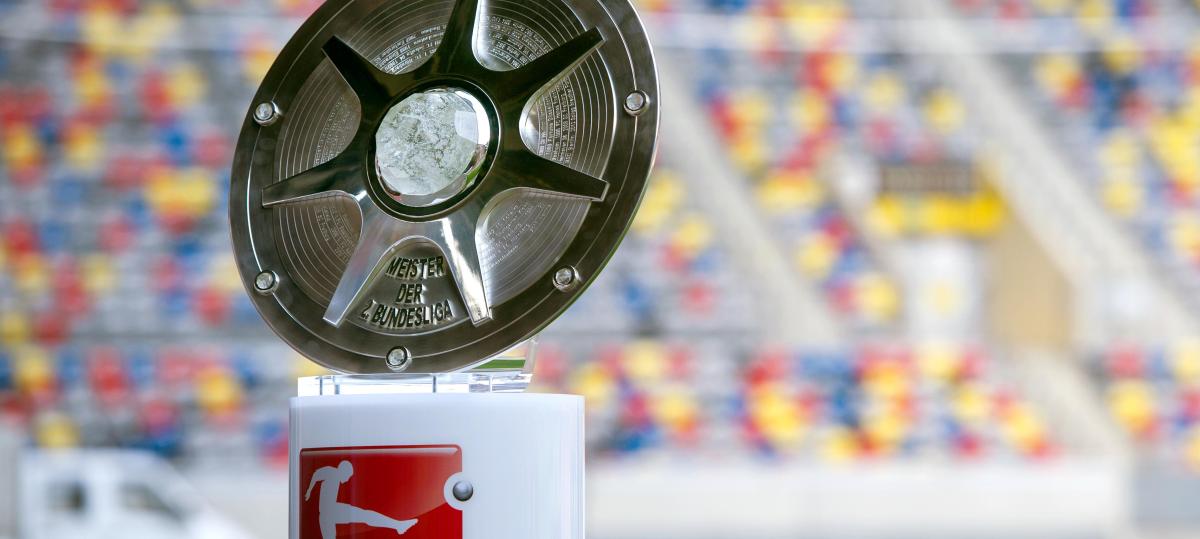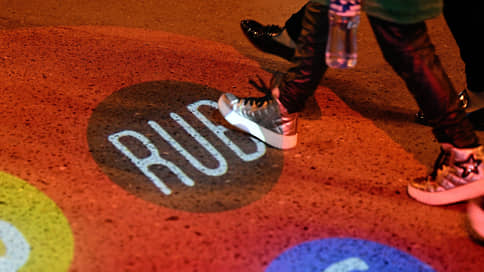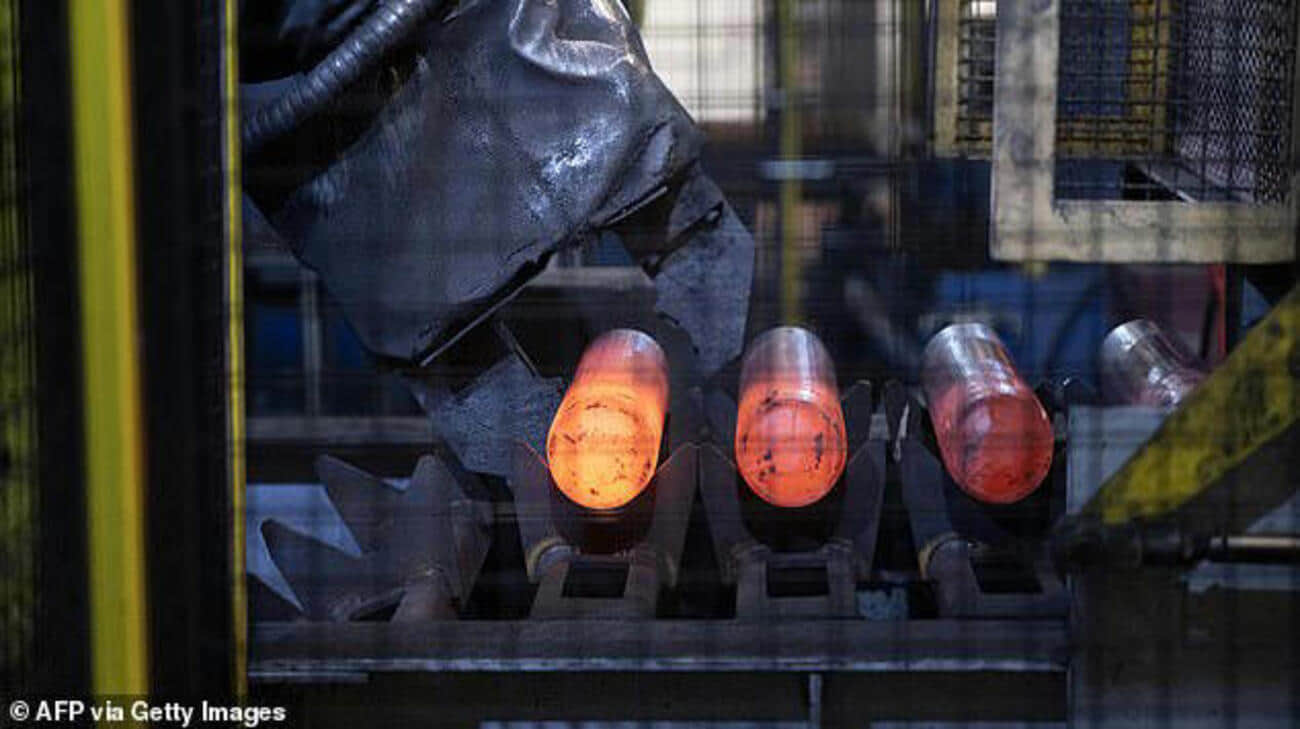Get used to it: Empty coffee and tea in the supermarket
/s3/static.nrc.nl/images/gn4/stripped/data128720280-3c7e07.jpg)
Blue letters on a white plate. « These products are currently less available. » Apologies for the inconvenience, reports the Albert Heijn branch in the Alkmaar shopping center Ringers at the pretty empty shelf with coffee from Douwe Egberts. Only the green variant of the (mild & soft) is still available. Elsewhere in the store, AH makes a striking advertisement for its private brand coffee.
This is the coffee quarrel between the great Dutch supermarkets and JDE Peet's, the parent company of Douwe Egberts, on the ground.
A few blocks away, at the new Jumbo in the old V&D building, no signs or apologies with coffee. However, it is striking: here the store staff 'the red suits Douwe Egberts will no longer' mirror '. The messy shelf seems to be a quiet protest against the price increases that JDE Peet's wants to implement. The packs of private brand coffee are neatly aligned on the rack. In the web store, Jumbo gives a 25 percent discount on his own coffee – a maximum of two kilo suits per order.
Conflict has been playing for months
This was the week that coffee and tea slowly disappeared from the shelves of the big supermarkets. That is, not all coffee and tea, but merely the products of JDE Peet's. That is the owner of Douwe Egberts, Senseo, L'Or, Kanis & Gunnink and Pickwick.
The coffee and tea flict has been playing for months now. JDE Peets – that on Wednesday a 5 percent higher turnover of 8.8 billion euros and a doubling of the profit to 543 million reported over 2024 – would like to greatly increase the purchasing prices for supermarkets. According to Michiel Muller, co-founder of internet herbier Picnic, this is an increase of 20 to 30 percent.
JDE Peet's points, among other things, to the greatly increased prices for coffee beans (green, still unroasted coffee beans). A spokesperson for the group does not want to confirm the percentages that Muller mentions, but the company calls the increases « honest and reasonable in the current circumstances. » The group says it only passes on « what is inevitable ».
Albert Heijn, Jumbo and Picnic find the rises unreasonable. Also the supermarkets that purchase via Superunie, such as Plus, Spar, Dirk and Dekamarkt, also have a conflict with JDE Peet's but don't want to say anything about it. Customers of these chains report that products from Douwe Egberts and Pickwick are missing in the stores.
Not only in the Netherlands is Peet's having large supermarket chains; This also applies to Belgium, Germany and France
The large supermarkets also burn coffee and know how high the actual increases of (production and transport) costs are, they say. « For the outside world, the statements for cost increases sound very reasonable, » says Muller of Picnic. “Due to all kinds of factors, the price is for Green Coffee greatly risen. JDE Peet's mentions climatic conditions in Brazil and Vietnam, higher transport costs, geopolitical developments. ” But according to Muller, large coffee roasters have much less burden than smaller parties. Concerns such as JDE Peet's conclude contracts for the very long term. « Then you can't point to the higher spot-market. » That is the short -term market, where the now available coffee is traded.
The supermarkets already saw the shower hanging. « It became unpleasant, » says Muller about the negotiations with JDE Peet's. That is why stores have recently bought more coffee and tea than they could sell directly-'front-loading' in professional jargon. Now that buffer is emptying. And the consumer notices that, here and there, empty store.
The CEO of JDE Peet's, Rafael Oliveira, stated on Wednesday at the presentation of the annual figures that many of the negotiations are « quickly completed ». When is still unclear. AH, Jumbo and Picnic are in conversation with JDE Peet's, but are not yet reporting.
Two thirds drink coffee daily
The current purchasing quarrel about coffee and tea receives a lot of attention in the press. Logical, the drinks are popular. If milk is the white engine, then coffee is the black engine on which society is running. According to branch organization Koffie & Tea Nederland, two thirds of the Dutch drink coffee daily, and a third drink tea daily.
But price conflicts between supermarkets and suppliers are not new. And they also regularly lead to empty shelves. « Not available due to purchasing discussions, » it sometimes said on a sign in the store.
Jumbo, for example, argued last year with the American food company Kraft Heinz about the prices of De Ruijter's sandwich spreads. Products from Danone, Dr Oetker and Mondelez (Oreo, Lu, Milka) were also missing in the Jumbo stores for some time.
In total, around 250 product types were temporarily not available in Dutch supermarkets last year, says Marleen Hermans. She is assistant professor of marketing at Radboud University in Nijmegen. She did research into why supermarket shelves sometimes remain 'deliberately' empty.
Hermans expects conflicts between, in particular, A-brand manufacturers and supermarkets will prevent more and more. See the current coffee and tea drying. « That is a large -scale conflict. Between two powerful blocks. There are several supermarkets involved and the conflict is spreading across European borders. » Not only in the Netherlands is Peet's having large supermarket chains; This also applies to Belgium, Germany and France.
Economist Thijs Geijer from ING, specialized in 'Food & Agri', also has the impression that price conflicts between supermarkets and suppliers now occur more often than before. « The battle paves, » he says. « Supermarket and A-brand have a wise marriage. They can't live without each other, but they certainly no longer go into the sea at any price. «
Muller van Picnic: “Negotiations with A-brands are complicated. If you don't have an A-brand in your store, the consumer may go to the neighbor. That not only affects the sale of a pack of coffee, but of the entire contents of the shopping basket. That's the cunning. «
'Great against large'
The power relationship between A-brands and supermarkets has become more equal, says Marleen Hermans. « In the past there were many 'groceries', I call them, very dependent on suppliers. Now supermarket chains have professionalized the purchasing. «
It is now « big to great, » says Geijer of ING. Jumbo achieved a turnover of 10.6 billion euros in 2024, that from JDE Peet's rose to 8.8 billion as said. The changed power relationships are primarily due to the consolidation in the Dutch supermarket industry, says Geijer. After a good number of mergers and acquisitions, only a limited number of chains are now over. After Albert Heijn and Jumbo, Plus and the smaller members of Superunie follow – in addition to discounters such as Aldi and Lidl.
We can make more a fist
« The Dutch food market for food is not or hardly grows, » says professor Laurens Sloot (entrepreneurship in the retail trade, University of Groningen). « Supermarkets can mainly grow by taking each other market share; 0.1 percent is already important. Remember that not all chains have played a good year: Jumbo and Plus Lost Market Share. This leads to very great pressure on the negotiations with suppliers. «
International alliances
Those negotiations are not limited to a national level. The battle paved in particular because for several years the purchasing of A-brand products has been going through international alliances.
For example, AH mother Ahold Delhaize is in a purchasing group with the French market leader E.Leclerc and the German Rewe. And on behalf of Jumbo and Picnic, the Everest and Epic Partners organizations negotiate with around fifty large, global suppliers about purchasing prices. The German market leader Edeka is affiliated with Everest, as well as the French supermarkets Intermarché, Auchan and Casino. « We can make more a fist, » says Muller of Picnic.
The agreement within Everest is: if one supermarket disagrees with the rates that a manufacturer requires, then that supplier has a conflict with the entire group. That Jumbo joined Everest in 2023 would have already yielded the chain 50 million euros in purchasing benefits.
« As a result, supermarkets are firmer in their shoes during the negotiations, » says Marleen Hermans. « That can lead to more conflicts in which products are removed from the shelves. In addition, this can also lead to 'paving' of the negotiations; A purchasing organization is a bit further away from the company, which makes negotiations on price harder. ”
Everest in particular has the reputation to negotiate the price sharply. « Everest is champion boycotting, » says Professor Sloot. And university teacher Hermans says: “This can go two sides; In the short term this can be beneficial in terms of price, but what it means for the long -term relationships between supermarkets and manufacturers is still unclear. ”
JDE Peet's does not have it on the purchasing alliances, according to the response from the spokesperson. She points out that « powerful alliances, some of which represent a turnover of more than 200 billion euros » can have a negative effect on « healthy competition in the market, such as less choice for consumers and lack of innovation. » « Consumers can also have to deal with empty shelves in one European country, caused by conversations between a retailer and a manufacturer in another country. »
Muller van Picnic calls such reactions « crocodile tears » of the A-brands. According to him, they deserve a multiple of what the supermarkets deserve. The A-brands also indicate national 'purchasing walls', which means that Picnic, for example, is not allowed to purchase bottles of Coca-Cola in Germany and can sell in the Netherlands. A bottle of cola is much cheaper in Germany than in the Netherlands. « Even though a free movement of goods and services applies in Europe. »

/s3/static.nrc.nl/images/gn4/data130910257-c7b0e3.jpg)

:format(jpeg):fill(f8f8f8,true)/s3/static.nrc.nl/bvhw/files/2019/07/brieven.png)



